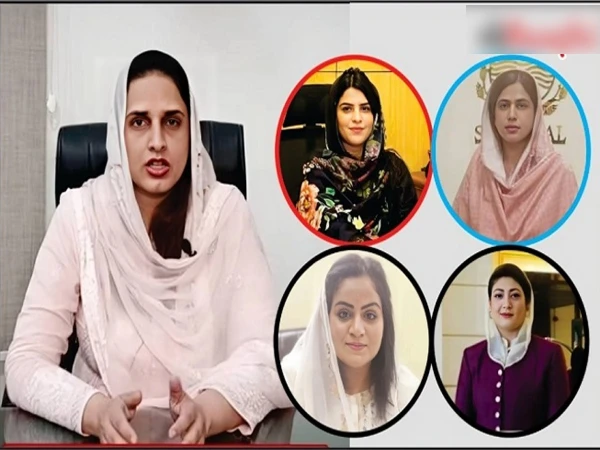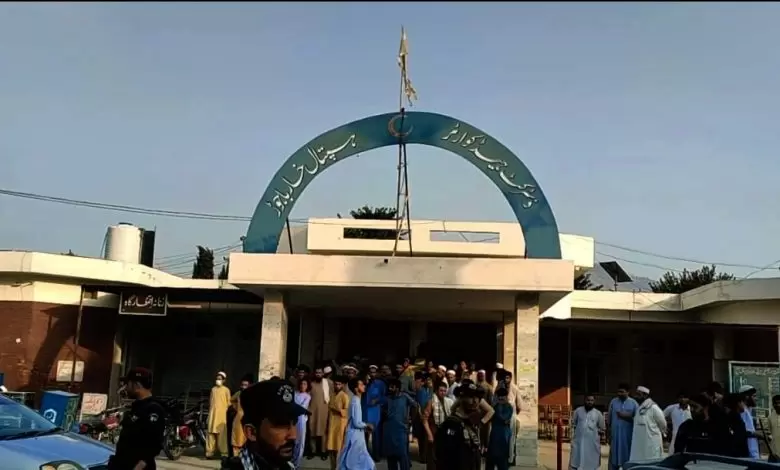Hyderabad is the fifth-largest city in Pakistan and the second-largest in Sindh, boasting a unique identity in electoral politics. The city's populace, largely comprising the middle and working class, is currently immersed in the electoral fervor following the announcement of manifestos by candidates and parties, with women actively engaging in the process.
As per the latest data from the Election Commission, Hyderabad has 551,167 registered women voters, constituting 45.78% of the total.
While there has been a prevalent notion that women here vote based on their husbands' political leanings, the rising influence of social media and increased access to mobile and the internet among women challenges this perception.
Also Read: Advocating Inclusive Elections: Transgender Rights in Focus
The upcoming 2024 elections reveal that women in Hyderabad harbor distinct preferences, intending to cast their votes based on individual considerations.
Empowering Health Facilities through Votes
Nabila, a pseudonymous nurse, eagerly anticipates the 2024 General Election as she plans to cast her vote based on her preferences for the first time.
Despite her family's historical allegiance to another political party, Nabila is determined to support the candidate prioritizing the enhancement of public health in their manifesto.
Women's Historical Role in Political Movements
Contrary to the notion that women lack interest or understanding in politics, history attests to the pivotal role of women in past movements. From the Pakistan Movement to protests against the Hudood Ordinance in 1981 and various women's associations, women's participation has been instrumental.
The success of these movements, including the historic 1983 Lahore protest against the Shahadat Act, is credited to the active involvement of women.
Voting for Mobility and Freedom
Nimra, a third-year student at Jamia, expresses her intent to vote for a candidate committed to improving public transport in Hyderabad, especially emphasizing women's mobility. The city faces a shortage of public transport options, with limited buses and Suzuki vehicles operating in specific areas and routes.
Votes for Subsidies in Online Business
Ayesha reveals her electoral preference for the party that pledges to offer special loans, subsidies, and opportunities for home-based online women entrepreneurs.
Given the surge in online shopping and the growth of home-based businesses, Ayesha seeks a party that recognizes and supports the financial independence and talents of women engaged in online ventures.
Advocating Indigenous and Tribal Women's Representation in Government
Social activist Samreen Khan Ghori, founder of a community-based organization, asserts her intention to vote for a party that ensures the inclusion of local and tribal women in the decision-making process.
Amidst political upheaval, Samreen emphasizes the need to consider women not merely as numerical voters but to provide them opportunities based on their population ratio, fostering inclusive legislation.
Empowering the Future through Votes for Education
Mehwish, a dedicated government school teacher, emphasizes that her vote will be dedicated to education. She intends to support a party genuinely committed to improving the government education system rather than one merely making claims without substantial action.
Mehwish acknowledges the prevalent promises in political party manifestos regarding education but expresses a sense of disillusionment with the apparent disparity between these promises and on-ground realities.
Advocating for Daily Wage Earners' Welfare through Votes
Zainab, a daily wager in a cottage factory, is inclined to vote for a candidate who prioritizes the welfare of daily wage earners. She highlights the challenges faced by this demographic due to escalating inflation, affecting their ability to provide necessities for their families. Zainab emphasizes the pressing need for candidates who understand and address the struggles of daily wage earners.
As the women of Hyderabad demonstrate determination, the adage "The personal is political" comes to life. These women perceive voting as a potent solution to their myriad challenges and are actively participating in the electoral process on February 8.
The outcome will reveal whether candidates and parties can meet the expectations of these women, potentially shaping a future map of Hyderabad marked by development and prosperity in subsequent general elections.
2.jpeg)
1.jpeg)
09 Jul, 2025





1.jpeg)
09 Jul, 2025